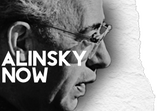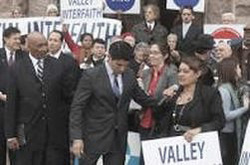 Valley Interfaith TX Valley Interfaith TX
Raising the minimum wage paid to workers employed by future federal contractors builds on a living wage initiative first launched by a broad based IAF organization in Baltimore, Maryland – BUILD – in 1994. Since that ground breaking public action hundreds of political subdivisions have followed suit.
Now, President Obama has turned to the IAF playbook for a centerpiece action in his State of the Union speech delivered two days ago. Going forward, by his executive order, federal contractors will pay their workers a minimum of $10.10 per hour. It’s a step in the right direction but a very small step unless linked to other inventive local initiatives advanced in conjunction with the living wage. The Obama team would be well advised to explore places where this broader, more complex agenda has been initiated because it has implications for growing local economies and attacking inequality in concrete ways. In this regard the Obama administration has failed and will continue to fail until it looks in the right places for inspiration, strategic thinking, and road tested action. The sad truth is that once elected Barack Obama turned his back on the very community organizing tradition that for a few years played an important role in his life journey. He lost touch with its vital center of innovation and impact. Now, in the twilight of his presidency, he has a fresh opportunity to mine a tradition that has delivered remarkable outcomes across a broad front of concerns voiced by poor and middle class alike. 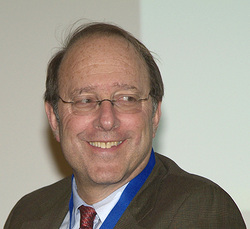
Reading Gathering Power by MIT Professor Paul Ostermann is a good place to start his re-education in modern, broad based organizing and the strategic opportunities it breaks open. Valley Interfaith, an IAF organization in the Rio Grande Valley of Texas, embodies precisely the grassroots driven, community tested, multi-issue change that the Obama administration so desperately needs to explore right now. In the story of Valley Interfaith he will find living wage ordinances coupled with labor market intermediaries, building and strengthening worker’s associations, immigrant integration, school reform, child development and large scale infrastructure investments that have made life better for tens of thousands of families.
It’s late in the game for President Obama to awaken to the creative opportunities advanced by a tradition he once briefly practiced. But it’s not too late. His legacy may well depend on it.
0 Comments
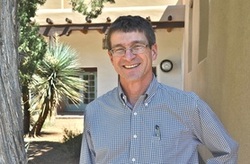
Organizers generally have a hard time explaining to outsiders what they do. Running the gamut from the glib “I’m a trouble maker”, to the dated “I’m like a union organizer but in the community”, to the quaint “I’m a community organizer”, to the inoffensive “I train leaders how to build organizations”, to the ingratiating “I work for a foundation”, the answers are generally unsatisfying to the inquiring audience.
If that’s a problem, what about how to name the new creations organizers organize? Community organizations or CO’s? No. Most ventures are now larger in scale. Broad based organizations or BBO’s? Sounds dangerously odiferous. Citizens organizations? Most now include the undocumented. How about IBCO’s (Institution Based Community Organizations)? Is that an abbreviation for chemicals in the West Virginia water supply? I prefer Broad Based Community Organizations but BBCO’s doesn’t beat IBCO’s or BBO’s by more than a nose if at all. For the moment I’ll use IBCO’s because that’s what the only national studies of what the authors call "the field" use. IBCO’s are a growing phenomenon by any measure. In 2012 Richard Wood and Brad Fulton place their numbers at about two hundred. Their numbers like their moniker don't matter much. What does matter is what they have done, do now and may do in the future. Given their growth, geographic expansion and potential impact, that’s a question worth exploring. 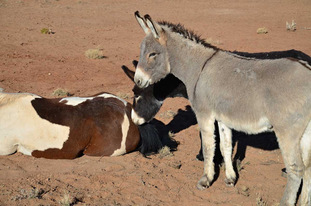 Image: 7msnranch Image: 7msnranch
Most philanthropists share two qualities. They hold fast to the belief they’re doing something important with their money. They find exquisite joy in the experience of being pandered to. Put them together and you have money and power writ small in all its vainglory. Lesser beings, those who actually invent, agitate, initiate must learn the fine art of pandering if any philanthropic dollars are to flow their way. For starters, the monied – old monied Carnegie and Rockefeller types or new monied Buffett and Gates types - deep down share the same expectation. Kiss my butt if you want what we’ve got. Subtle or blatant, quixotic or bureaucratic, that’s where the action is. We rich, or more likely an intermediary of we rich, know better. More important we are better so butt kissing in actuality is mere recognition of a truth. The only way to get around this entirely is to raise dollars through alternative means – hard work for hard money. I suspect more organizers leave the field because of this degree of difficulty than for any other reason. It makes a person tough minded but it can frustrate and wear down the spirit. Paradoxically solving the money problem for an organizer doesn’t do him or her any favors. Concentrating money at the top of networks of organizations turns everyone into a hired hand. Relying on hard money guarantees survival, ownership and self-respect. But it radically decelerates parts of the organizing business that are exceptionally difficult to scale up without outside, soft money resources. To name just two:
The money problem confronts organizers and leaders with hard trades, conflicting aspirations and persistent dilemmas. 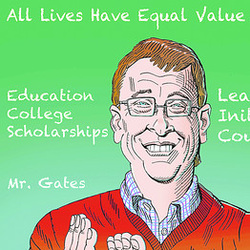
Foundationland and all the pandering and program altering bs that gets piled up there is only the tip of the funding iceberg. It’s a given that nothing approaching the truth ever happens in this territory.
These days more important is the newly minted money elites coupled with rich heirs whose wealth has been compounding for years into a gigantic bolus. Whether from gaming, technology, pornography, extraction, entertainment, finance, health care – it doesn’t matter. Here lies the ground of the new philanthropy that is an iteration of the old philanthropy in a new key. Relative to his times, lucky smart ruthless Bill Gates parallels lucky smart ruthless John D Rockefeller. Rockefeller rode the engine of oil to the financial stratosphere. Gates rode the engine of software engineering to the same place. Both believed their ventures were gifts to humanity and both believed business practices they embraced if duly replicated in philanthropic enterprise would make the world a still better place. Both fought hard to create monopolies, or failing that, cartels in their commercial activities. Both fought hard to advance monopolistic dynamics in their philanthropic activities. Both succeeded by purloining the best work of others. Both self-presented as self made and were acclaimed as such by an adoring media. Both dismissed the importance of fostering democratic practices in their philanthropic offspring. Both held unions in contempt. Both did everything in their power to kill off any worker sentiment flowing in the direction of organized political power. |
Frank C. Pierson, Jr.Frank Pierson retired after forty years of work with the Industrial Areas Foundation (IAF) as a professional organizer. He began his career in 1971 in Chicago, moved to Queens, New York City and migrated west to work in Arizona, New Mexico, Nevada and Colorado. He resides with his wife, Mary Ellen Kazda, in Oracle, Arizona. He may be reached at alinskynow@gmail.com Archives
June 2018
|

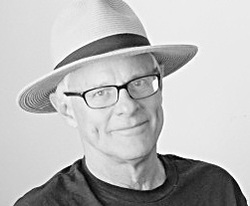
 RSS Feed
RSS Feed
